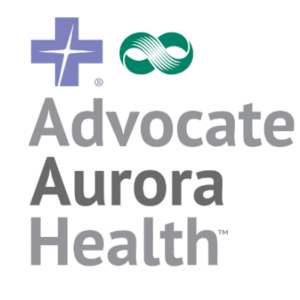Journey to Zero Patient Harm
What follows is an interview with Carrie Nelson, MD, MS, FAAFP, System Vice President and Chief Medical Officer for Population Health and Health Outcomes for Advocate Aurora Health. She also serves as Chief Clinical Officer for Advocate Physician Partners, a nationally known clinically integrated network of 5,000 physicians across Illinois.
Tell us a little about Advocate Aurora Health and why you decided to focus on diagnostic quality improvement?
Advocate Aurora Health (AAH) is one of the 10 largest not-for-profit, integrated health systems in the United States and a leading employer in the Midwest with 75,000 employees, including more than 22,000 nurses and the region’s largest employed medical staff and home health organization. A national leader in clinical innovation, health outcomes, consumer experience and value-based care, the system serves nearly 3 million patients annually in Illinois and Wisconsin across more than 500 sites of care.
Advocate Aurora is engaged in hundreds of clinical trials and research studies and is nationally recognized for its expertise in cardiology, neurosciences, oncology and pediatrics.
“At AAH, we are relentlessly focused on patient safety and our journey to zero harm,” said Dr. Nelson. “We know that diagnostic quality is a widespread issue and that we cannot get to zero harm without addressing it. Even though the science is young and still actively evolving, other organizations trying to create a culture of diagnostic excellence in their organization/institution should recognize that there are things that can be done to enhance diagnostic quality today.”
What activities has Advocate Aurora Health undertaken to encourage discussion of diagnostic quality and safety?
Advocate Aurora started a diagnostic quality think tank earlier in 2020. The project is currently underway, but has been greatly delayed by the COVID-19 pandemic. Stay tuned for additional updates.
“While we’ve had delays with that work due to COVID, diagnostic quality remains an important consideration in how to best engage our clinicians in the safety journey,” said Dr. Nelson.
Advocate Aurora also uses the mortality review process, a systematic multi-disciplinary review of all in-hospital deaths to uncover all improvement opportunities, including diagnostic opportunities. The goal of this process is that no one (patient, family or staff) should suffer from system process failures. Dr. Jean Huddleston has spoken about the mortality review process at previous Diagnostic Error in Medicine conferences.
Additionally, Advocate Aurora was one of 17 grantees of the DxQI Seed Grant program in September 2020. Each grantee received up to $50,000 to test specific interventions designed to improve the quality, accuracy, and timeliness of diagnoses and reduce harm from diagnostic error.
What were some barriers you needed to overcome in order to advance your work? How did you overcome them?
“I think there’s a risk of seeing issues related to diagnostic quality as insurmountable due to the human nature of cognitive bias,” says Dr. Nelson. “Bringing practical tools to the table and engaging our safety, risk and quality teams in how to test such tools has generated much excitement. For those who see diagnostic quality lapses and their consequences firsthand, it is energizing to test how such tools might make a difference.”
You were recently awarded a DxQI Seed Grant. Can you tell us about your Seed Grant project?
This past summer, Advocate Aurora Health received a DxIQ Seed grant to focus on diagnosis of sepsis and decrease the incidence of community-acquired sepsis in an ambulatory setting. The grant will help Advocate Aurora reach their goal of improving infection diagnosis and reducing sepsis by allowing them to move further upstream in the trajectory of a sepsis diagnosis, potentially preventing hospitalization in the first place.
As stated in Advocate Aurora’s project description, “Infection can be a difficult condition to detect and prevent from becoming serious and causing harm. The body’s reaction to serious infection, sepsis, is the third leading cause of death in patients admitted to hospital intensive care units and affects more than 1.7 million patients in the U.S. each year.”
Advocate Aurora Health has improved in-hospital detection rates and is now focusing efforts to improve the diagnosis of infection in outpatient clinics. Advocate Aurora is initiating an infection screening program for patients and will measure the program’s success in diagnosing infection and reducing sepsis.
“We are motivated by the ‘search and rescue’ mission that characterizes sepsis. While we’ve made great progress, we know more is needed,” said Dr. Nelson. “Applying insights gained from the inpatient environment to the outpatient environment can take this work to the next level.”
What does being part of the Coalition mean to Advocate Aurora Health? Has it shaped any of your diagnostic improvement work?
“I am inspired by the number of thought-leading organizations that have chosen to tackle this very thorny problem,” said Dr. Nelson. “The network of learning that is possible through membership in the Coalition is a game changer in our ability to start to understand and improve the diagnostic process in transformative ways.”
Resources

Get ACT Update Delivered to Your Inbox
Want to see more content like this? Stay informed on that latest activities from members of the Coalition to Improve Diagnosis. Sign up for the ACT Update Newsletter.
